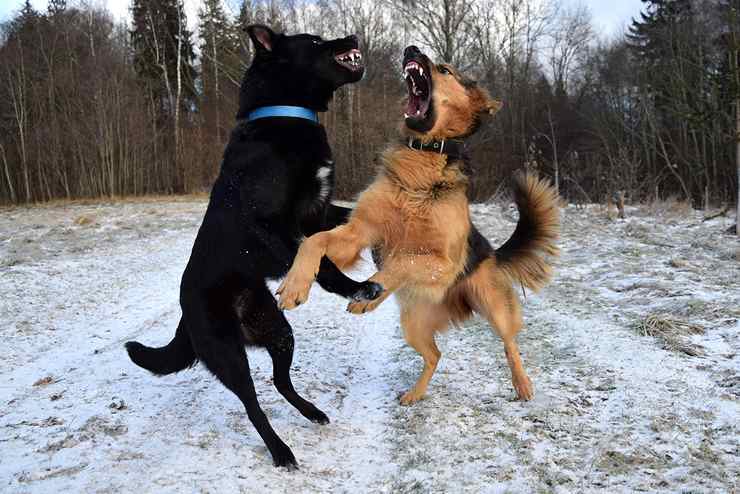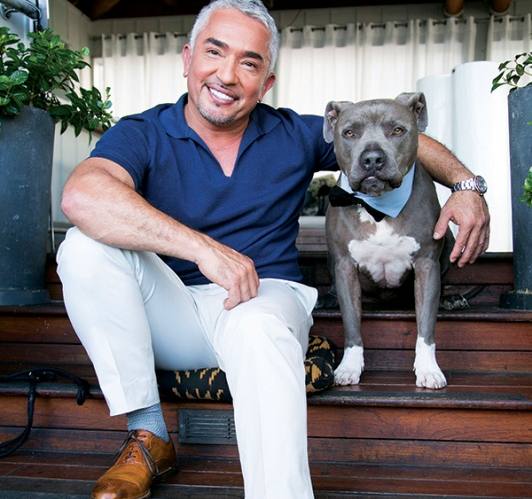Dogs are a blessing to humans. From being a man’s best friend to security, you can count on these paw-friends for anything. They also make up for excellent investigators and livestock herders, thanks to their enhanced senses.
Similar to humans, dogs have to be raised well and taught positive behaviors. While their woof and ruff can be pleasing to hear at most times, it is equally irritating when the barking is loud and consistent.
This article provides in-depth research pertinent to Bark Control facts and the misinformation that surrounds the topic. Do dogs ever get tired of barking? And how can you control them? Let’s find out.
Content Table
Dogs Never Get Tired of Barking
An incessantly barking dog is a nuisance. And while you might think that it will stop in minutes, the dog can keep on for hours until the cause is addressed.
Dogs never get tired of barking. The best-case scenario is that they will slow down. It is the only tool they have at their disposal to inform and communicate to their owners as well as other dogs.
There are many tested and proven ways to stop an unnecessarily barking dog. These ways range from simple behavior enforcement to harsh bark control collars.
These furry animals bark when they are afraid, hungry, cold, excited, and basically everything. It is up to you to figure out why your pet is being a nuisance and solve it as soon as possible.
If it is a neighbor’s pet and is disturbing your peace of mind, you can consult them to take necessary actions. If all else fails, there are always laws to solve your problem. Filing a police report would be a logical move.
Some Dogs Bark at Everything That Passes By
If your paw friend barks at everything that passes by, it is most likely a territory, alert, and social barking combined. Let’s look at what they are.
1. Territory Barking
Dogs claim their owner’s territory as their own. In addition, the walkways and usual playgrounds that they are familiar with also count as territory for them.

The territory barking is mostly to assert dominance and scare the intruder to go away. Your dog will not stop barking until the intruder, or the object has left its sight.
2. Alert Barking
If something startles your dog, it will get alert and start barking. The causing factor can be strange noises, objects, dogs, and even people. Their ears are sensitive to loud/high-pitched noises.
Similarly, they can also be alerted by incoming climatic threats like hurricanes and earthquakes.

3. Social Barking
Dogs need to be properly socialized as a puppy. When you see two dogs bark at each other from a distance, it’s just them communicating. Oftentimes, they don’t even need the visual and communicate with just sounds.
If they are showing aggressive behavior in combination with the bark, it is due to poor socialization. They are most likely using the incessant barking as a self-defense mechanism.

Why Do Dogs Bark Excessively?
Barking is natural to dogs. They communicate their emotions through this. However, when they bark continuously, there is usually a trigger that motivates them to do so. Let’s look at some niche cases for excessively barking dogs.
i. Barks When They See Other Dogs
There are multiple reasons why dogs bark at other dogs. They are probably socializing. When the bark is followed by excitement signs, wagging tails, and pacing, it means that they are eager to play and socialize with other dogs.
And while their violent barks can convey to you that they are fighting, they could just be greeting each other. But, excessively barking at other dogs means the dog isn’t trained properly.

Unsocialized dogs tend to react to excessive barking when they see their kind. They usually are nervous and confused about how to react. Thus, they pull their leash and bark incessantly to warn other dogs to keep their distance.
Another reason is frustration. If your puppy was free and properly socialized in the past, but you have restricted it from being in contact with other dogs, it might feel frustrated. Dogs are easily attached and love the company of their kind. When they see other dogs on the street, they want to socialize by barking, smelling, and playing.
However, since the owner restricts it thinking a fight would break out, they feel limited. This leads to excessive barking. Another reason is that they are afraid of the other dogs and use their continuous barks as a self-defense mechanism. We can term these situations as ‘frustrated greeting.’
ii. Territorial Barking
When you adopt a dog, you are no longer the only owner of your property. Your dog marks its territory and takes the responsibility to look after it. Even if they are friendly dogs, they can react aggressively to people and pets they are not familiar with. Dogs are like a ‘do not trespass’ sign, but only meaner.
Excessive barking can start if a stranger walks into its territory. And the bark gets louder and more consistent when they get closer. It is normal to bark for a short period. But continuous barking is a behavioral problem. Your dog will not stop barking until the trigger is away from the territory.
You can recognize territorial barking because of the alertness and aggressive nature of the dog. And this is really troublesome because the territory isn’t limited to your home. It can be the streets where you walk your dog, your car, or even you.
iii. Alarm Barking
Dogs have better sensory capacity than humans. They notice every subtlety in their environment regarding smell, sound, and sight. Thus, they are also startled easily by certain noises and objects. Dogs bark excessively when they feel threatened or afraid. You can usually identify it as they tuck their tails, make their body still, and pull back their ears when they are afraid.
During alarm barking, your dog will pounce forward in small steps between each bark. What differentiates this from territorial barking is that it can happen outside of what the dog thinks is its territory. If something startles or frightens it, your dog will bark without interruption until you take care of the catalyst.
iv. Attention Barking
Dogs hate to be alone. They enjoy consistent affection and attention from their owners or from other dogs. However, if they bark incessantly to call for your attention, you have trained it wrong, especially because they can induce this behavior at night when you cannot tend to it.

Attention-seeking bark won’t stop unless you provide the dog with its favorite toy or treat. It is a result of many reinforced behaviors that your dog has learned. For example, whenever a dog barks loudly, we shift our focus to it because human beings are automatically drawn to loud noise.
This convinces your canine companion that barking loudly and continuously is the best way to get your attention.
v. Separation Anxiety
Your dog is more attached to you than you think. Separation anxiety is a concerning issue that requires to be sorted out with expert help. It can lead to some destructive behavior in dogs that may cause self-injury or damage your house.
If your dog starts barking excessively when you are preparing to leave the house, it is a symptom of separation anxiety.
The continuous barking can also start a few moments after the owner has departed the house. The barks are accompanied by restlessness, escape tries, chewing on sofas and mattresses, and other destructive behaviors.
It shows that the dog is in distress. It is upset because of loneliness. Thus, taking medical and expert guidance is a must in this case.

vi. Compulsive Barking
As lovely as dogs are, they also tend to be irritating at times. Some dogs that are untrained bark excessively for no reason.
They just love to spend their energy and boost their adrenaline. Barking is pleasant for all dogs. This is what they do to show happiness, anger, or distress.
However, ones with Compulsive Barking habits can go on for hours which is not acceptable to the owners and especially the neighbors. The same dogs are also more likely to be disobedient and chaotic with their surroundings.
Steps to Control Your Dog’s Barking
The first step would be to figure out why your dog is barking excessively. More often than not, the dog has reasons to continue this behavior.
It could be anything from another dog to an unfamiliar presence or even some alarming situations like an approaching hurricane or earthquake.
There are also cases where the dog just likes barking when it has nothing to do. Below are some measures you can employ to mitigate the excessive barking issue.
i. Behavior Reinforcement
A well-trained pup grows up to be an obedient and loving dog. If your dog barks continuously when it needs something, and it stops after its demand is fulfilled, that’s not the right way to reinforce its behavior. Instead, reward it for showing positive habits.
Do not provide it the treat or reward as it is barking. Wait for some minutes after your dog has stopped and treat it then.
This convinces your dog that the key to getting treats and cuddles from you is to stay quiet. Reinforce positive behavior from the early days even if it does not have a barking problem.

ii. Motivation Removal
A dog usually looks at the cause when it is barking. Figure out what disturbs its peace and remove it from the dog’s sight.
If your dog barks at passersby, relocate it somewhere where it cannot see the road or just put up a barrier like curtains or windows.
There are also other motivations for it to bark, like hunger, cold, or a tight leash. Make sure to solve the problem, and the excessive barking will stop.
iii. Diversion
One way to stop your barking dog is to divert his focus to something that he enjoys more. It could be physical activities like playing or swimming.
When your dog is busy enjoying the water, it will prioritize playing over barking.
iv. Desensitize
Some dogs are habituated to bark or be uncomfortable with some specific things. If you cannot stop it from barking whenever it sees other dogs, try to expose it to the situation more.
Tell our friend to stay at some distance with his dog and treat your dog every time it does not react to your friend’s dog.
Slowly, close the distance until your dog is familiar and no longer sensitive to the situation. You can repeat the process with any other issues that your dog has.
v. Ignore
Oftentimes, your paw friends bark to capture your attention. And after a long barking session, if you fulfill its demand, a behavior reinforcement is activated.
Instead, ignore your dog as long as it is barking. After it calms down, wait for some time and reward it with a treat.
You may have to notify the neighbors beforehand if your dog is habituated to get your attention after barking because it will be a long time before it stops.
vi. Exhaust Your Dog
Dogs spend a lot of energy each day barking. If you keep it physically active and exhaust its energy in the daytime, the barking will reduce significantly.

vii. Muzzles
Honestly, it should never come to this. Animal rights activists think that using muzzles for your dog is abusive behavior. However, it does come in handy in emergency situations.
In the US, strict laws have been implemented for dog barking and disturbance. If your neighbor files cases multiple times, and the problem still isn’t solved, you may face up to 6 months in jail and other financial compensation. Here, the muzzle can be of use when there is no way out.
Moreover, dogs tend to bark and bite aggressively when they are wounded. If you try to take it to the hospital, there are chances of you getting bitten.
This is especially true with untrained dogs. Thus, you can also use the muzzles in such scenarios.
viii. Barking Control Collar
These are somewhat modest compared to muzzles. Today, many manufacturers have introduced harmless collars which emit smells and sprays that the dog dislikes.
Whenever a dog barks excessively, the collar sprays the liquid and thus startles the dog. It will stop barking to not experience it anymore.
There are also other barking control collars that give your dog a small electric shock when they bark. This, too, should only be used in emergency situations.

ix. Take Professional Help
If you have followed the basic steps and still have a hard time controlling your dog’s incessant barking habits, we suggest taking professional help.
Veterinary professionals and dog trainers can solve the problem and stop it from escalating further.
Dog Barking in Sleep
You wake up in the middle of the night because you hear your canine friend barking. But as you approach closer, you see it asleep, moving its feet, twitching its ears, wagging its tail, all while still barking.
This is normal, and here are things to know if you have experienced this.
Why Do Dogs Bark in Sleep?
Like humans, dreams are natural for dogs. Some believe that they experience it even more vividly. Your paw friend might be chasing after rabbits or playing with you in its dream.
Or, in certain cases, if it is panting and tucking its tail, it might be having a nightmare. Whatever the case, it is normal for dogs to bark in sleep when they are in a deep dream.
Dreams are more common in small breeds as they tend to happen every 10 minutes when they are in the REM cycle.
For larger breeds like a German Shepard or a Golden Retriever, dreams appear at least once in 90 minutes. All humans dream but only some talk in their dreams. It is similar to dogs.


Solutions For Dogs Barking in Sleep
If the occasional sleep barking does not disturb you, it is best to let the dog be and enjoy its dream.
However, if it disturbs your sleep schedule, you can relocate your dog to another room without waking it up.
For more severe cases, when the barking is unbearable, the best option is to contact your vet. Even though some sites have found solutions in using sleeping pills, we strongly advise against it. It is never a good idea to give your paw friend human medicine.
Also, if the dog is barking and panting and having breathing problems while asleep, it would be best to wake it up.
Famous Dog Trainer Cesar Millan talks about Dog Barking Control.
Cesar Millan is arguably the most famous and reputed dog trainer in the world. This has also endowed him the title of ‘Dog Whisperer.’
The dog trainer has released many videos and blogs on how we can take care of our canine friends effectively.
Furthermore, he also helps people who are facing behavioral problems with their dogs. Below are Cesar’s best tips to stop dogs from excessive barking.
i. Be Calm
You have to set a leading example for your dog. If you are frustrated, your negative energy will also affect it. Thus, try to be calm and handle the situation with grace.
ii. Use Commands or Sounds
Throughout the course of raising your pup, you have to establish some sort of commands or sounds that your pup can instantly recognize.
Cesar personally uses the ‘tsch’ sound. It is because it imitates the sound of a tire leaking air which is irritating to pups.
Thus, the ‘tsch’ will stop their mental inertia and readjust the focus of the dog. You can use any command that suits you.
iii. Divert the Energy
When your dog starts barking excessively, divert that energy for some productive tasks. Play games or take your dog for a quick swim.

iv. Correct and Reinforce Behavior
Whenever your dog shows bad behavior, correct it immediately and follow through until it stops. You must repeat this as long as your dog is well behaved.
v. Lead with Confidence
To quote Cesar’s words, ‘stop treating your dog like a human.’ Sometimes, you have to show your friend who is in charge of the situation. Always be strict when you have to.
Why Does Dog Bark at Nothing?
While a dog mostly barks when something troubles or excites it, the reason might be unclear in some cases.
Many owners claim that their dog barks at nothing, and it is almost impossible to make them stop. Below are some reasons and what you can do about it.
Attention
Your canine friend is an attention seeker. If it stops barking as soon as you look or pet, it demands your attention. If the barking is off-limits, you can solve this with positive behavior reinforcement.
Injury or Discomfort
Barking is how dogs communicate. Thus, it may seem like your dog is barking at nothing. But it wants to convey to you about its discomfort or injury.
If your dog is barking incessantly without any issues, browse his body for injuries and also check if the leash is too tight.
Potential Danger
Dogs can sense danger better than humans. For example, dogs can hear the earthquake frequencies or alert you about an incoming hurricane. Never ignore your dog’s bark if it is combined with rapid pacing and panting.
Compulsive Barking
Some dogs just love barking, and there is no other explanation for it. Seeking professional help will be the best if it hinders your peace.
Conclusion
Barking is normal behavior and should not be criticized until it violates the peace of mind of the owners or neighbors. It is your responsibility as a dog owner to train your puppy from a young age to tackle any problems that may arise in the future.
Barking habits that are deeply rooted can be hard to counter with homemade efforts. Thus, it is always a logical move to seek professional help.

